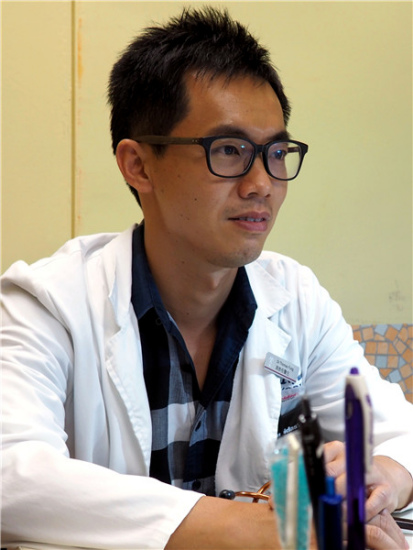
Sung Jao-yiu, vice-chancellor of the Chinese University of Hong Kong, who worked as a lead doctor in the fight against the virus. (Photo/China Daily)
Case numbers decline
Having infected 1,755 people and claimed 299 lives, SARS began its retreat in mid-May 2003. The number of new patients slowed to a trickle, and fewer than five new cases were recorded each day.
Important, but harsh, lessons were learned.
"We'd hoped the outbreak could be contained in a few days, but it took about 100," said Sung, who added that the city's healthcare system was ill-prepared for the outbreak: "If we hadn't quarantined people, the virus could easily have spread to other places, which it did anyway, in some cases."
By the end of the year, Singapore had 238 reported cases, with 33 deaths, while 346 cases and 37 deaths were recorded in Taiwan, according to the World Health Organization.
In the wake of the outbreak, Hong Kong implemented a series of measures to protect against infectious diseases. Sung describes them as "big improvements" in the city's defenses.
Infection-control facilities at hospitals were fortified, and more resources were allocated to train experts in infectious diseases. Most important, according to Sung, was the June 2004 establishment of the Centre for Health Protection, which is charged with overseeing and controlling the spread of infectious diseases.
SARS sprang from Foshan, Guangdong province, where the first case was reported in 2002. The virus went underground, before being imported to Hong Kong in early 2003. An infected doctor arrived in Hong Kong from Guangdong and checked into the Metropole Hotel, Kowloon. In less than two weeks, he was dead.
"JJ", a local resident, visited the hotel and contracted the virus. He was admitted to Sung's hospital on March 4, the day the doctor from Guangdong died. The virus quickly took hold at the hospital, and soon spread to the rest of the community.
Now, communications have improved between experts in infectious diseases from the Chinese mainland and Hong Kong. For example, recent outbreaks of Avian flu were better managed as a result of improved cross-border cooperation, said Sung.
"We (Hong Kong's medical professionals) got the information the same day new cases were reported. We were also given more data and descriptions about the nature of the Avian flu outbreak," he said.

Professionalism
Fourteen years later, Sung is still going strong. He devotes his energies to higher education, especially in the medical field: "I have a deep conviction about the importance of education, because SARS called for knowledge, professionalism and medical ethics."
The SARS lesson led Sung to accept the position as vice-chancellor of the Chinese University of Hong Kong in 2010. He has rallied around medical students at the university, encouraging them to start their careers in the city's overstressed public hospitals, which have a shortfall of 250 doctors.
Fung is now an ear, nose and throat specialist at the Pamela Youde Nethersole Eastern Hospital. "With Sung's encouragement, I have stayed in a public hospital to serve severe cancer cases, and people unable to afford expensive surgery," he said.
He also works as a volunteer at the university, where he's taught anatomical dissection for five years.
"I want to pass on my knowledge to future doctors," he said.




















































